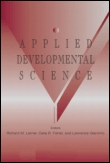
Applied Developmental Science
Scope & Guideline
Empowering researchers with cutting-edge perspectives on life-span studies.
Introduction
Aims and Scopes
- Youth Development and Well-Being:
Research focusing on various dimensions of youth development including social-emotional learning, civic engagement, and resilience strategies that contribute to overall well-being. - Family and Contextual Influences:
Exploration of how family dynamics, parental involvement, and community contexts shape developmental trajectories and educational outcomes for youth. - Cultural and Social Factors in Development:
Studies examining the role of cultural identity, social capital, and systemic factors affecting the development of diverse youth populations. - Intervention and Program Evaluation:
Evaluation of programs and interventions aimed at improving youth outcomes, including after-school programs, community initiatives, and school-based interventions. - Psychometric Development:
Research dedicated to developing and validating measurement tools that assess various aspects of youth development, including social and emotional skills.
Trending and Emerging
- Impact of Technology on Youth Development:
Increasing attention is being paid to how digital engagement, social media, and online environments influence youth behavior, identity, and social interactions. - Mental Health and Resilience:
There is a growing focus on mental health issues among youth, alongside research into resilience-building strategies that can mitigate adverse effects of stress and trauma. - Cultural Competence and Diversity:
Emerging research emphasizes the importance of cultural competence in developmental practices, addressing the unique needs of diverse populations and the impact of systemic inequities. - Longitudinal and Mixed-Methods Approaches:
An increase in longitudinal studies and mixed-methods research designs is evident, reflecting a trend toward more comprehensive and nuanced understandings of developmental trajectories. - Intergenerational and Community Studies:
Research that explores the role of community and intergenerational relationships in youth development is on the rise, highlighting the significance of social networks and support systems.
Declining or Waning
- Traditional Educational Methods:
There has been a noticeable decrease in studies focusing solely on traditional educational methods, as the field shifts towards more holistic and integrative approaches to youth learning and development. - Single-Factor Studies:
Research that examines isolated factors affecting youth development, without considering the broader ecological contexts, seems to be declining as the field increasingly values multi-faceted, integrative approaches. - Research on Risk Factors in Isolation:
Studies that primarily address risk factors in youth development without examining protective factors or resilience strategies are becoming less common, reflecting a more balanced approach to understanding youth outcomes.
Similar Journals

Universitas Psychologica
Advancing psychological scholarship for a global audience.Universitas Psychologica is a vital academic journal published by the Pontificia Universidad Javeriana, Facultad de Psicología, situated in the vibrant city of Bogotá, Colombia. Since its inception in 2007, this journal has been dedicated to advancing the field of psychology through rigorous peer-reviewed research and innovative insights. With an ISSN of 1657-9267, it serves as a repository for a wide range of psychological studies, focusing on both conventional methodologies and emerging trends in the discipline. Despite holding a Q4 quartile ranking in general psychology and social psychology for 2023, its commitment to nurturing scholarly discourse and fostering an academic community remains unwavering. Universitas Psychologica emphasizes open accessibility to its content, making significant research available to a global audience. As it converges towards 2024, the journal continues to aim for heightened visibility and influence within the research community, aspiring to support the next wave of psychological scholarship.

INTERNATIONAL JOURNAL OF SPORT PSYCHOLOGY
Advancing the Mind Behind the GameThe INTERNATIONAL JOURNAL OF SPORT PSYCHOLOGY is a prominent publication dedicated to advancing the field of sport psychology through rigorous research and insightful commentary. Published by EDIZIONI LUIGI POZZI, this journal has been a vital resource since its inception, providing a platform for scholars and practitioners to explore the psychological dimensions that influence athletic performance and physical activity. Although it operates under a non-open access model, the journal remains committed to quality and relevance, holding a category quartile of Q3 in Applied Psychology as of 2023. With a historical coverage ranging from 1973 to 2021, it serves as a comprehensive archive for a diverse audience seeking to deepen their understanding of psychological principles in sports contexts. Researchers, professionals, and students will find this journal indispensable for accessing influential studies and emerging trends within the discipline.

Educational and Developmental Psychologist
Advancing knowledge in educational and developmental psychology.The Educational and Developmental Psychologist is a premier journal dedicated to advancing research and practice in the fields of educational and developmental psychology, published by Taylor & Francis Ltd. With an ISSN of 2059-0776 and an E-ISSN of 2059-0784, this journal has established itself as a key resource for researchers and practitioners alike, providing a platform for innovative studies that bridge theory and application. With a 2023 Scopus ranking placing it in the top 73rd percentile in Education and 58th in Developmental Psychology, it highlights significant findings that are shaping educational practices globally. Operating from the United Kingdom, this journal is committed to disseminating high-quality, peer-reviewed research that is crucial for professionals addressing the challenges encountered in educational settings. Although it is not an open-access journal, its impact on educational psychology is noteworthy, reflecting rigorous standards in its publication process. The journal's scope encompasses a wide variety of topics, promoting an interdisciplinary dialogue that is essential for the advancement of knowledge in education.
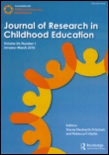
Journal of Research in Childhood Education
Inspiring change through evidence-based findings.The Journal of Research in Childhood Education, published by Routledge Journals, Taylor & Francis Ltd, is a prestigious academic journal that has been at the forefront of childhood education research since its inception in 1986. With an ISSN of 0256-8543 and E-ISSN 2150-2641, this journal serves an essential role in disseminating findings and discussions pertinent to the fields of developmental and educational psychology, as demonstrated by its notable rankings in the 2023 Scopus Ranks, placing it in the 66th percentile of Educational Social Sciences and 49th percentile in Developmental Psychology. With a current Q2 category quartile designation in both Developmental and Educational Psychology and Education, it aims to foster a deeper understanding of the complexities surrounding childhood education practices and policies. Researchers, educators, and students alike will find robust and insightful research that contributes to advancing educational theories and practices, supporting the journal's mission to enhance the overall quality of education for children globally. This journal continues to be a critical resource for individuals passionate about enhancing early childhood education and comprehending the developmental challenges faced by children today.

INTERNATIONAL JOURNAL OF EARLY CHILDHOOD
Transforming theories into practice for future generations.INTERNATIONAL JOURNAL OF EARLY CHILDHOOD, published by Springer, is a prestigious platform dedicated to the exploration and advancement of knowledge in the fields of Developmental and Educational Psychology as well as Education. With an ISSN of 0020-7187 and E-ISSN 1878-4658, this journal plays a pivotal role in disseminating research findings and theoretical developments related to early childhood education worldwide. Its impact is underscored by its noteworthy rankings, placing it in the Q2 category for Developmental and Educational Psychology and Q1 in Education in 2023, reflecting its significance in the scholarly community. With a robust Scopus rank of #186 out of 1543 in Social Sciences Education and #68 of 360 in Developmental and Educational Psychology, this journal ensures high visibility and engagement for innovative research. Since its inception in 1969, the journal has served as a vital resource for researchers, educators, and policy-makers interested in shaping the future of education through empirical evidence and comprehensive studies.
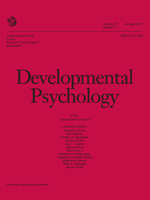
DEVELOPMENTAL PSYCHOLOGY
Shaping the Future of Developmental ResearchDEVELOPMENTAL PSYCHOLOGY is a prestigious journal published by the American Psychological Association, dedicated to advancing the field of developmental psychology through rigorous research and insightful analysis. With an impact factor that ranks it in the Q1 category for Demography, Developmental and Educational Psychology, and Life-span and Life-course Studies, this journal stands as a leading resource for scholars and practitioners alike. Since its inception in 1969, it has provided a platform for innovative studies that address crucial questions surrounding human growth and development across the lifespan. The journal is recognized for its high-quality contributions, as reflected in its impressive Scopus rankings, positioning it within the top tiers of its field. Although it is not an open-access publication, it remains an essential reading for those invested in understanding the complexities of development across various stages of life. Published quarterly, DEVELOPMENTAL PSYCHOLOGY plays a critical role in shaping future research agendas and informing practical applications in educational and clinical settings.
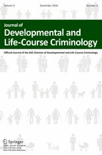
Journal of Developmental and Life-Course Criminology
Advancing Insights into Developmental CriminologyThe Journal of Developmental and Life-Course Criminology, published by Springer International Publishing AG, stands as a vital resource in the interdisciplinary fields of criminology, psychology, and social sciences. With an ISSN of 2199-4641 and an E-ISSN of 2199-465X, this journal provides a platform for high-quality research that examines the intricate relationships between developmental pathways and criminological outcomes. The journal has been recognized with impressive rankings, categorized as Q2 in Applied Psychology, Q1 in Law, and Q2 in Life-span and Life-course Studies for 2023, reflecting its significance in advancing knowledge within these domains. With Scopus rankings placing it within the top percentiles, it offers a unique Open Access option, making research widely accessible to scholars, practitioners, and students seeking insights into the lifecycle approach to crime and justice. Operating from Switzerland at Gewerbestrasse 11, Cham CH-6330, Switzerland, the journal aims to foster scholarly communication and meaningful discourse on pivotal issues pertaining to developmental criminology from 2015 through 2024 and beyond.
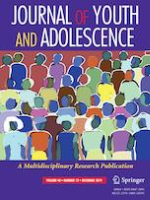
JOURNAL OF YOUTH AND ADOLESCENCE
Empowering voices in developmental psychology.Journal of Youth and Adolescence, published by Springer/Plenum Publishers, is a premier scholarly journal that focuses on the developmental issues, behavioral challenges, and social dynamics faced by children and adolescents. Since its inception in 1972, this esteemed journal has provided a critical platform for innovative research, theoretical advancements, and empirical findings within the fields of Developmental Psychology, Educational Psychology, Social Psychology, and broader Social Sciences. With impressive quartile rankings, including Q1 in four distinct categories in 2023, it proudly ranks among the top journals in its field—standing at #21 out of 604 in Social Sciences (Miscellaneous), #88 out of 1543 in Education, and #29 out of 360 in Developmental Psychology. The Journal of Youth and Adolescence is dedicated to advancing knowledge and fostering dialogue among researchers, practitioners, and policymakers interested in youth development, thereby enhancing its impact on educational and social practice. Although the journal currently does not offer open access options, its rigorous peer-review process ensures high-quality publications that contribute significantly to the scholarly community.

JOURNAL OF GENETIC PSYCHOLOGY
Exploring the Genetic Roots of Mind and BehaviorJOURNAL OF GENETIC PSYCHOLOGY, published by Routledge Journals, Taylor & Francis Ltd, stands as a prominent outlet within the fields of Clinical Psychology, Developmental Psychology, and Life-span Studies. Since its inception in 1946, this journal has played a pivotal role in disseminating transformative research that explores the intricate links between genetics and psychological phenomena. With an impact factor that reflects its scholarly rigor and recognition, the journal is categorized in the Q2 quartile across multiple psychology domains, underscoring its significance in advancing knowledge and practical applications in psychological sciences. The journal features a broad range of articles—from empirical studies to theoretical reviews—fostering a vibrant academic dialogue among researchers, professionals, and students alike. Although currently not an open-access journal, it provides robust subscription options for institutions and individuals seeking to engage with cutting-edge research. Whether you are looking to enrich your academic portfolio or stay at the forefront of psychological science, JOURNAL OF GENETIC PSYCHOLOGY remains an essential resource. For more information or to explore our latest issues, please visit our site.
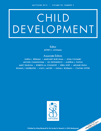
CHILD DEVELOPMENT
Illuminating critical issues in child health and education.CHILD DEVELOPMENT, published by WILEY, stands as a premier journal in the fields of developmental and educational psychology, education, pediatrics, perinatology, child health, and social work. Established in 1945, it has consistently maintained a strong impact, underscored by its 2023 Q1 ranking in multiple relevant categories, as well as its esteemed positions within Scopus rankings, including a remarkable 14th place in Pediatrics. The journal serves as a vital resource for researchers and professionals, offering rigorous peer-reviewed articles that explore pivotal aspects of child development through a multidisciplinary lens. Although it does not currently offer open access options, CHILD DEVELOPMENT remains influential, addressing critical topics in child psychology, policy implications, and educational practices. Researchers and students alike will find the journal’s comprehensive scope instrumental in advancing their understanding and fostering an evidence-based approach to contemporary child development issues.